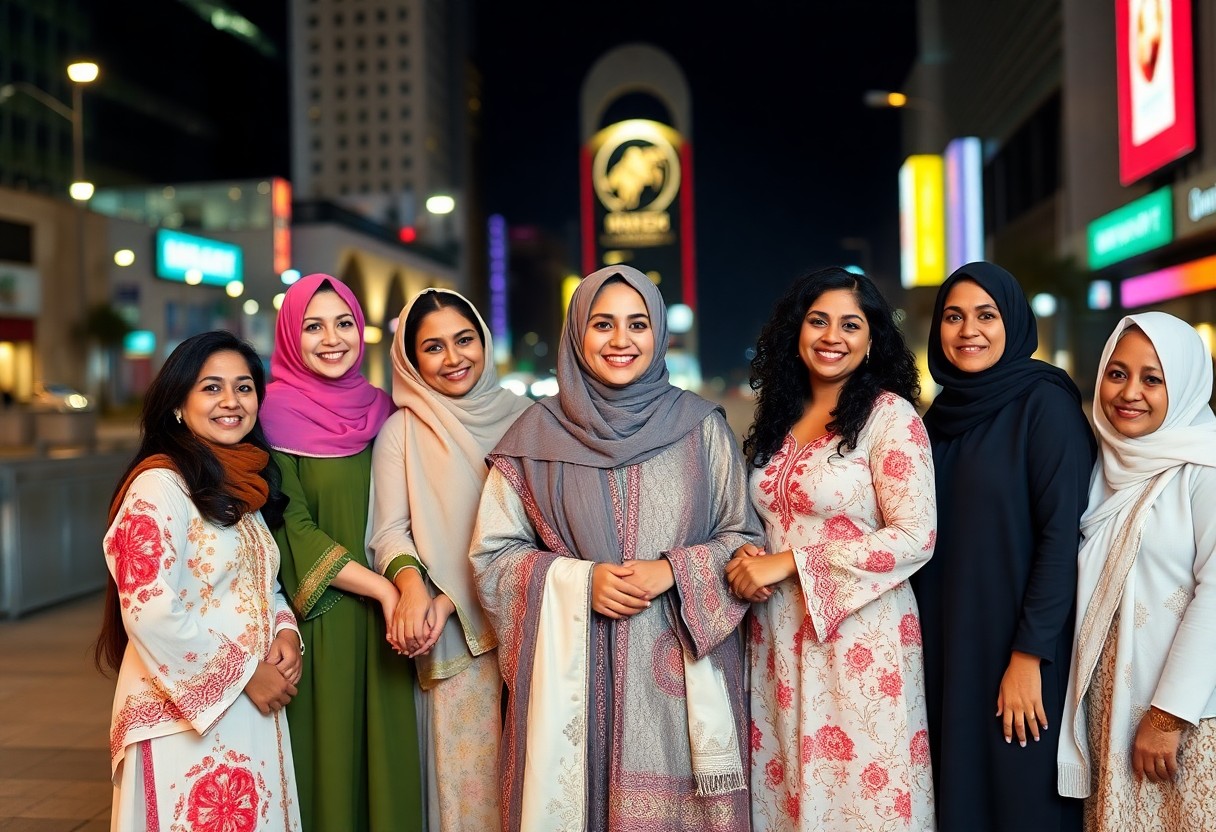international day of women
As you mark the International Day of Women, you acknowledge the significant progress made towards gender equality. You understand that women’s rights are human rights, and it’s imperative to address the alarming rates of violence and discrimination against women worldwide. You will learn about the positive impact of empowering women and the life-changing effects it has on your community and the world at large, as you research into the significance of this day.
History of International Women’s Day
To understand the significance of International Women’s Day, you need to examine into its rich history. As you explore the origins and evolution of this day, you will discover the tireless efforts of women who fought for their rights and paved the way for future generations. You will learn about the challenges they faced and the victories they achieved, which have shaped the world you live in today. The history of International Women’s Day is a testament to the power of women’s voices and their unwavering determination to create a more equal and just society.
Origins and Evolution
Against the backdrop of social and economic inequality, the first International Women’s Day was observed in 1911 in Denmark, Austria, Switzerland, and Germany. As you look back, you will see that this day was born out of necessity, as women from different countries came together to demand change and fight for their rights. You will notice that the early 20th century was a time of great social upheaval, with women playing a key role in the labor movements and suffrage movements. As you explore this period, you will discover the pioneering work of women like Clara Zetkin, who is often credited with the idea of an International Women’s Day. You will also learn about the impact of World War I on the women’s movement, which galvanized women to take action and demand greater equality.
As you continue to explore the origins and evolution of International Women’s Day, you will see how it spread rapidly across the globe, with women from different countries and backgrounds uniting to celebrate their achievements and struggle for greater equality. You will notice that the United Nations played a significant role in promoting International Women’s Day, and in 1975, it officially recognized March 8 as International Women’s Day. You will also learn about the diverse range of activities that take place on this day, from rallies and marches to workshops and conferences, all aimed at promoting women’s empowerment and equality. As you look at the history of International Women’s Day, you will be struck by the resilience and determination of women who have fought tirelessly for their rights and freedom.
Key Milestones and Achievements
By examining the key milestones and achievements of International Women’s Day, you will gain a deeper understanding of the significant progress that has been made towards gender equality. You will see how women’s rights have evolved over time, from the early struggles for suffrage and equal pay to the more recent efforts to address violence against women and promote women’s empowerment. You will learn about the landmark achievements, such as the adoption of the Convention on the Elimination of All Forms of Discrimination against Women (CEDAW), which has been ratified by almost every country in the world. You will also discover the important role that women’s organizations and activists have played in pushing for change and holding governments accountable for their commitments to gender equality.
As you examine deeper into the key milestones and achievements of International Women’s Day, you will be heartened by the progress that has been made, but also aware of the significant challenges that still remain. You will see how women and girls continue to face discrimination and inequality in many parts of the world, and how gender-based violence and stereotypes still persist. You will understand the importance of continued action and advocacy to address these issues and promote greater equality. You will also appreciate the vital role that you can play in supporting women’s empowerment and promoting a more just and equal society.
By exploring the history of International Women’s Day, you will have a deeper understanding of the complex and ongoing struggle for gender equality. You will see the importance of International Women’s Day as a celebration of women’s achievements and a call to action for continued progress towards a more equal and just world. Evolution of International Women’s Day has been marked by significant milestones and achievements, but also challenges and setbacks. You will learn from the experiences of women who have fought for their rights and empowerment, and you will be inspired to take action to promote gender equality and support the empowerment of women and girls around the world.
Global Celebrations and Traditions
Assuming you are interested in learning about the diverse ways International Day of Women is celebrated around the world, you will be fascinated by the numerous traditions and customs that take place on this day. From parades and rallies to workshops and seminars, this day is marked with great enthusiasm and passion. You will notice that different countries have their unique way of celebrating this day, reflecting their rich cultural heritage and history. As you explore the various celebrations, you will be inspired by the strengthening of sisterhood and the promotion of gender equality that this day embodies.
As you probe deeper into the celebrations, you will discover that International Day of Women is not just a day of jubilation, but also a day of reflection and action. You will see that people from all walks of life come together to raise awareness about the challenges and inequalities faced by women, and to demand change. The day is also an opportunity to honor the achievements and contributions of women, and to inspire future generations to strive for excellence. You will be amazed by the creativity and innovation that goes into the events and activities organized on this day, from art exhibitions to fundraising campaigns.
As you experience the global celebrations, you will be struck by the sheer scale and diversity of the events that take place. You will see that International Day of Women is not just a day of celebration, but also a day of solidarity and unity. You will be heartened by the outpouring of support and commitment to the cause of women’s empowerment, and you will be inspired to join the movement and make a positive impact. Whether you are attending a conference or a community fair, you will be part of a global community that is dedicated to creating a better world for women and girls.
Cultural Significance and Diversity
Celebrations of International Day of Women vary greatly from country to country, reflecting the unique cultural traditions and historical contexts of each nation. You will discover that in some countries, the day is marked with traditional dances and music, while in others, it is celebrated with modern art and technology. As you explore the different celebrations, you will be amazed by the rich tapestry of cultures and traditions that exist around the world, and you will be inspired by the common goal of promoting women’s rights and empowerment. You will see that the day is an opportunity to learn from each other and to share best practices in the pursuit of gender equality.
Ceremonies and rituals are an integral part of the celebrations, and you will be fascinated by the symbolism and meaning behind each one. You will notice that in some countries, the day is marked with traditional foods and drinks, while in others, it is celebrated with modern cuisine and entertainment. As you experience the different ceremonies and rituals, you will be struck by the deep significance and importance of this day, and you will be inspired to respect and appreciate the diversity of cultures and traditions that exist around the world.
Culturally, the celebrations are a way to honor the contributions and achievements of women, and to recognize the challenges and barriers that they face. You will see that the day is an opportunity to reflect on the progress that has been made, and to recommit to the cause of women’s empowerment. As you participate in the celebrations, you will be part of a global movement that is dedicated to creating a more just and equitable world for women and girls, and you will be inspired to make a difference in your own community and country.
Community Events and Activities
Significantly, community events and activities are a key part of the celebrations, and you will be impressed by the variety and creativity of the events that take place. You will see that from charity runs to fundraising campaigns, the events are designed to raise awareness and support for the cause of women’s empowerment. As you participate in the events, you will be inspired by the energy and enthusiasm of the people involved, and you will be heartened by the sense of community and solidarity that exists among the participants.
Similarly, community activities such as workshops and seminars are an important part of the celebrations, and you will be impressed by the expertise and knowledge of the speakers and facilitators. You will see that the activities are designed to educate and empower women, and to provide them with the skills and resources they need to succeed. As you participate in the activities, you will be inspired by the commitment and dedication of the people involved, and you will be motivated to take action and make a difference in your own community.
Importantly, community events and activities are a way to bring people together and to build bridges between different communities and cultures. You will see that the events are designed to promote understanding and respect, and to celebrate the diversity and difference that exists among people. As you participate in the events, you will be part of a global community that is dedicated to creating a more just and equitable world for women and girls, and you will be inspired to work together to achieve this goal.
And as you look at the community events and activities in more detail, you will be struck by the positive impact they have on the lives of women and girls. You will see that the events are designed to empower and inspire women, and to provide them with the opportunities and resources they need to succeed. As you participate in the events, you will be inspired by the strength and resilience of women, and you will be motivated to support and celebrate their achievements, and to address the strong and persistent inequalities and discrimination that still exist, and to work towards a brighter and more equitable future for all. You will be aware of the danger of stereotypes and bias, and the importance of education and awareness in preventing them, and you will be determined to make a difference and to create a more just and equitable world for women and girls.
Women’s Rights and Empowerment
Any conversation about women’s rights and empowerment must begin with an understanding of the complex and multifaceted nature of the issue. As you consider the various aspects of women’s empowerment, you will find that it encompasses a wide range of topics, including economic independence, education, and access to healthcare. You will also notice that women’s rights and empowerment are closely tied to the concept of gender equality, which is imperative for creating a just and fair society. As you investigate deeper into this topic, you will see that women’s empowerment is not only a matter of individual rights, but also a key factor in promoting economic growth and reducing poverty.
As you explore the issue of women’s rights and empowerment, you will encounter numerous challenges and obstacles that hinder the progress of women around the world.
Current Challenges and Inequalities
Difficulties and hurdles abound in the pursuit of women’s empowerment, and you will find that discrimination, stereotyping, and violence against women are still prevalent in many parts of the world. You will see that women often face limited access to education and job opportunities, which can lead to economic dependence and poverty. Furthermore, you will notice that women are often underrepresented in leadership positions, which can perpetuate gender-based inequalities and limit their ability to effect change. As you consider these challenges, you will realize that addressing these issues is imperative for promoting women’s empowerment and creating a more just society.
Complications and difficulties also arise when you consider the social and cultural norms that perpetuate gender-based inequalities. You will find that patriarchal societies often restrict women’s rights and limit their access to resources, which can lead to poverty, illiteracy, and poor health outcomes. Additionally, you will see that violence against women, including domestic violence and sexual assault, is a serious problem that affects women worldwide. As you explore these issues, you will realize that addressing these challenges is imperative for promoting women’s empowerment and creating a more just and equitable society.
Confronting and overcoming these challenges will require a concerted effort from individuals, organizations, and governments around the world. You will find that education and awareness-raising are imperative for promoting gender equality and empowering women. Additionally, you will see that supporting women’s organizations and advocating for women’s rights can help to create a more just and equitable society. As you consider these strategies, you will realize that you have a role to play in promoting women’s empowerment and creating a brighter future for women and girls around the world.
Progress and Success Stories
Above all, it is imperative to acknowledge the significant progress that has been made in promoting women’s rights and empowerment. You will find that women’s organizations and advocacy groups have played a key role in promoting gender equality and empowering women. As you explore these success stories, you will see that education and economic empowerment have been critical factors in improving women’s lives. Furthermore, you will notice that women’s leadership has been instrumental in creating positive change and promoting social justice. As you consider these examples, you will realize that you can make a difference in promoting women’s empowerment and creating a more just and equitable society.
Ascending to leadership positions, you will find that women have made significant strides in politics, business, and civil society. You will see that women’s leadership has been imperative in promoting gender equality and empowering women. Additionally, you will notice that women’s organizations have played a key role in advocating for women’s rights and supporting women’s empowerment. As you explore these examples, you will realize that women’s empowerment is not only a moral imperative, but also a practical necessity for creating a more just and equitable society.
Advancing the cause of women’s empowerment, you will find that technology and social media have been powerful tools in promoting women’s rights and empowering women. You will see that online platforms have provided new opportunities for women’s voices to be heard and women’s stories to be told. Furthermore, you will notice that social media campaigns have been effective in raising awareness about women’s issues and promoting gender equality. As you consider these examples, you will realize that you have the power to make a difference in promoting women’s empowerment and creating a more just and equitable society.
In fact, as you look to the future, you will find that the potential for women’s empowerment is vast and exciting. You will see that women’s leadership and women’s organizations will continue to play a key role in promoting gender equality and empowering women. Additionally, you will notice that new technologies and innovative approaches will provide new opportunities for women’s empowerment and social change. As you consider these possibilities, you will realize that you are part of a global movement that is working towards a more just and equitable world, where women’s rights are respected and women’s empowerment is a reality. With strong determination and collective action, you can help to create a brighter future for women and girls around the world, and ensure that their rights are protected and their voices are heard.
Education and Economic Opportunities
After acknowledging the significance of empowering women, it becomes evident that education and economic opportunities play a vital role in their development. As you explore into the world of women’s rights, you will discover that access to quality education and career development are imperative for their growth. You will find that these opportunities can greatly impact their lives, allowing them to make informed decisions and become financially independent. Financial independence is a key factor in empowering women, as it enables them to support themselves and their families, breaking the cycle of poverty.
As you explore the topic further, you will come across the subsection of access to quality education, which is a fundamental right that every woman should have.
Access to Quality Education
About the time when girls are born, their fate is often sealed, and their access to education is limited. You will notice that in many parts of the world, girls are denied the opportunity to attend school, which can have severe consequences on their future. As you investigate this issue, you will find that lack of access to quality education can lead to a range of problems, including poverty, early marriage, and limited career opportunities. You will also discover that educated women are more likely to have better health, higher incomes, and greater participation in the workforce, which can have a positive impact on their families and communities.
You will also find that access to quality education can be hampered by various factors, including discrimination, cultural norms, and limited resources. As you analyze these challenges, you will realize that they can have a significant impact on a woman’s ability to access education and subsequently, her economic opportunities. You will see that educational institutions can play a critical role in promoting gender equality by providing women with the skills and knowledge they need to succeed. Moreover, you will understand that governments and organizations can also contribute to this effort by implementing policies and programs that support women’s education and economic empowerment.
Furthermore, as you continue to explore the topic, you will find that access to quality education is not only a matter of attending school, but also having access to relevant and high-quality educational content. You will notice that women need to have the opportunity to acquire skills that are in demand in the job market, such as science, technology, engineering, and mathematics (STEM) skills. You will also discover that mentorship and role models can play a significant role in encouraging women to pursue careers in these fields, and that organizations can provide training and development programs to help women acquire the skills they need to succeed.
Career Development and Financial Independence
To achieve financial independence, you need to have access to career development opportunities that can help you acquire the skills and knowledge you need to succeed. As you investigate this topic, you will find that women face a range of challenges in the workforce, including discrimination, unequal pay, and limited opportunities for advancement. You will also discover that these challenges can have a significant impact on their ability to develop their careers and achieve financial independence. You will see that women need to have access to networking opportunities, mentorship, and training programs to help them develop their careers and achieve their goals.
Additionally, as you explore the topic further, you will find that career development and financial independence are closely linked to entrepreneurship and innovation. You will notice that women can play a significant role in driving economic growth and development by starting their own businesses and creating new products and services. You will also discover that organizations can provide support and resources to help women entrepreneurs succeed, such as access to capital, training, and mentorship. You will understand that governments can also contribute to this effort by implementing policies and programs that support women’s entrepreneurship and economic empowerment.
To further emphasize the importance of career development and financial independence, you will find that it can have a positive impact on women’s lives and their communities. You will see that when women have the opportunity to develop their careers and achieve financial independence, they are more likely to invest in their families and communities, which can have a positive impact on education, health, and economic development. You will also discover that career development and financial independence can also have a positive impact on women’s mental and physical health, as it can reduce stress and increase their sense of fulfillment and purpose.
The career development and financial independence of women is a complex issue that requires a multifaceted approach. The lack of access to education and job opportunities can have severe consequences on women’s lives, including poverty, early marriage, and limited career opportunities. On the other hand, access to quality education and career development opportunities can have a positive impact on women’s lives and their communities, enabling them to make informed decisions, support themselves and their families, and contribute to the economic growth and development of their countries. You will understand that it is imperative to address the challenges that women face in the workforce and to provide them with the support and resources they need to succeed, including access to education, training, and mentorship.

Health and Wellbeing
Many women around the world face significant challenges when it comes to their health and wellbeing. As you consider the importance of this issue, it’s crucial to recognize that women’s health is not just a personal matter, but also a social and economic one. You deserve access to quality healthcare, and it’s your right to make informed decisions about your own body. Unfortunately, many women are denied these basic rights, and it’s up to you to demand change. Gender-based violence, discrimination, and lack of education are just a few of the obstacles that prevent women from achieving optimal health and wellbeing. You can be part of the solution by supporting organizations that work to address these issues and promote women’s health.
Reproductive Rights and Healthcare
Around the globe, you will find that women’s reproductive rights are constantly under threat. Almostalways, this is due to patriarchal societies and outdated laws that restrict your access to safe and legal abortion, contraception, and maternal healthcare. You have the power to challenge these systems and demand that your rights be respected. It’s astonishing to think that in some countries, women are still forced to undergo female genital mutilation or are denied life-saving reproductive healthcare. You can make a difference by supporting organizations that provide reproductive health services and advocacy. As you consider the importance of reproductive rights, you should also think about the intersectionality of women’s experiences, including the impact of poverty, race, and disability on access to healthcare.
Approximately, you will see that women’s reproductive health is closely tied to their economic empowerment. As you strive for equality, you must address the systemic barriers that prevent women from accessing education, employment, and financial resources. You can be part of the solution by supporting initiatives that promote women’s economic empowerment and provide access to reproductive healthcare. Almostalways, this involves working with local communities to develop context-specific solutions that address the unique needs of women in different parts of the world. You have the power to make a difference by advocating for policies and programs that support women’s reproductive health and economic empowerment.
Alike many other social justice issues, you will find that women’s reproductive rights are often negatively impacted by conflict and crisis. As you consider the importance of this issue, you should think about the ways in which humanitarian responses can be tailored to meet the unique needs of women. You can support organizations that provide reproductive health services in emergency settings and advocate for policies that prioritize women’s health and wellbeing in times of crisis. Almostalways, this involves working with local communities to develop context-specific solutions that address the unique needs of women in different parts of the world. You have the power to make a difference by demanding that women’s reproductive rights be respected and protected, even in the most challenging circumstances.
Mental Health and Self-Care
Any person, regardless of their background or circumstances, can experience mental health challenges. As you prioritize your own mental health, you should recognize the importance of self-care and seek out resources and support when you need them. You deserve to live a fulfilling and healthy life, and it’s crucial to prioritize your mental wellbeing. Astonishingly, women are more likely to experience depression and anxiety than men, often due to societal expectations and pressures. You can be part of the solution by supporting organizations that provide mental health services and advocating for policies that promote women’s mental health and wellbeing.
Arguably, you will find that mental health is closely tied to social and economic factors, including poverty, education, and employment. As you strive for equality, you must address the systemic barriers that prevent women from accessing resources and support. You can support initiatives that promote women’s mental health and wellbeing, including community-based programs and online resources. Almost always, this involves working with local communities to develop context-specific solutions that address the unique needs of women in different parts of the world. You have the power to make a difference by advocating for policies and programs that support women’s mental health and wellbeing.
Akin to other social justice issues, you will find that women’s mental health is often negatively impacted by trauma and violence. As you consider the importance of this issue, you should think about the ways in which mental health services can be tailored to meet the unique needs of women. You can support organizations that provide mental health services and advocate for policies that prioritize women’s mental health and wellbeing. Also, you should seek out resources and support when you need them, and prioritize your own mental wellbeing. You deserve to live a fulfilling and healthy life, and it’s crucial to prioritize your mental health.
Also, as you think about the importance of mental health and self-care, you should consider the ways in which you can prioritize your own wellbeing. You can start by practicing self-care activities such as meditation, exercise, or spending time in nature. You can also seek out resources and support when you need them, including therapy or support groups. Additionally, you can advocate for policies and programs that promote women’s mental health and wellbeing, including increased funding for mental health services and initiatives that promote women’s economic empowerment. By taking these steps, you can help to create a world where women’s mental health and wellbeing are valued and supported.
Women in Leadership and Politics
Now, as you consider the role of women in leadership and politics, you may notice a significant gap between the number of women in positions of power and their male counterparts. This disparity is a result of various barriers and stereotypes that have been ingrained in societies for centuries. To address this issue, it is important to recognize the importance of promoting gender equality and providing opportunities for women to take on leadership roles.
Breaking Down Barriers and Stereotypes
Now, you can see that women are making significant strides in breaking down barriers and stereotypes in the world of politics and leadership. Some of the key areas where women are making progress include:
- Increased representation in government and politics
- More opportunities for women to take on leadership roles in business and industry
- Greater access to education and training for women and girls
- More support for women’s rights and empowerment initiatives
- Increased visibility of women in leadership positions, serving as role models for young girls and women
Around the world, women are working to break down these barriers and challenge stereotypes that have held them back for so long. You can see the progress being made in the following table:
| Country | Percentage of Women in Parliament |
|---|---|
| Iceland | 47.6% |
| Sweden | 44.7% |
| Finland | 41.5% |
| Norway | 40.6% |
| Denmark | 37.5% |
As you consider the data, you will notice that many countries still have a long way to go in achieving gender parity in leadership positions. Any effort to promote gender equality and support women’s empowerment is important for creating a more just and equitable society.
Inspiring Female Role Models and Mentors
Above all, you will find that inspiring female role models and mentors play a significant role in encouraging and supporting women to take on leadership positions. These women serve as beacons of hope and inspiration, showing others that it is possible to succeed in male-dominated fields. You can look to women like Malala Yousafzai, Angela Merkel, and Michelle Obama as examples of strong and capable leaders who have made a significant impact in their respective fields. As you consider the impact of these women, you will realize that they are not only inspiring others but also paving the way for future generations of women leaders.
Further, you will find that inspiring female role models and mentors are important for promoting gender equality and empowerment among women. These women provide guidance and support, helping others to navigate the challenges of leadership and overcome obstacles. As you look to these women as role models, you will be inspired to take on new challenges and pursue your own goals and aspirations. You will realize that you too can make a difference and become a leader in your own right, and that with determination and hard work, you can achieve great things.
Summing up
Presently, as you reflect on the significance of the International Day of Women, you are likely to appreciate the progress made towards achieving gender equality. You have witnessed the numerous struggles and challenges that women have faced throughout history, and you understand that the journey towards equality is still ongoing. Your awareness of the importance of promoting women’s rights and empowering them to take control of their lives is necessary in creating a more just and equitable society. As you consider the various ways in which women have been marginalized and excluded from decision-making processes, you are reminded of the need for continued advocacy and activism to address these injustices.
As you look to the future, you are encouraged to think critically about the ways in which you can contribute to the advancement of women’s rights and gender equality. You have the power to make a positive impact in your community, whether through volunteering with organizations that support women’s empowerment or by simply being an ally to the women in your life. Your actions, no matter how small they may seem, can help to create a ripple effect that inspires others to take action. You are also urged to educate yourself about the issues that affect women and girls, such as gender-based violence, unequal pay, and limited access to education and healthcare. By deepening your understanding of these issues, you will be better equipped to advocate for policies and practices that promote greater equality and justice.
Ultimately, as you commemorate the International Day of Women, you are celebrating the achievements and contributions of women around the world. You are acknowledging the significant progress that has been made towards achieving gender equality, while also recognizing the work that still needs to be done. Your commitment to supporting and empowering women is necessary in creating a more just and equitable society, where everyone has the opportunity to thrive. As you move forward, you are encouraged to continue advocating for women’s rights, challenging discriminatory practices, and promoting greater inclusion and diversity. By doing so, you will be playing a vital role in shaping a brighter future for women and girls, and helping to create a world where everyone can live with dignity and respect. Your efforts will have a lasting impact, and you will be part of a global movement that is working towards a more equitable and just world for all.
FAQ
Q: What is the International Day of Women and when is it celebrated?
A: The International Day of Women, also known as International Women’s Day (IWD), is celebrated on March 8th every year. It is a global day to commemorate the social, economic, cultural, and political achievements of women. The day also marks a call to action for accelerating women’s equality and challenging biases and stereotypes that women face worldwide.
Q: What is the history behind the International Day of Women, and how did it originate?
A: The International Day of Women has its roots in the early 20th century. It originated from labor movements in North America and Europe, where women were fighting for better working conditions, equal pay, and the right to vote. The first National Woman’s Day was observed in the United States on February 28, 1909. Over time, the date was moved to March 8th to commemorate a 1917 demonstration in Russia where women demanded “bread and peace” during World War I, leading to significant political change. The United Nations officially adopted March 8th as International Women’s Day in 1975.
Q: How is the International Day of Women celebrated around the world, and what activities take place on this day?
A: The International Day of Women is celebrated globally with a variety of events, activities, and campaigns. These include marches, rallies, conferences, and discussions focused on gender equality, women’s empowerment, and the challenges women face. Many organizations, including the United Nations, launch campaigns and themes for the year, highlighting specific issues such as violence against women, women in leadership, or women’s health. Additionally, many countries celebrate by honoring women’s achievements, promoting gender parity, and engaging in community service. The day is also marked by the wearing of purple, a color symbolizing justice and dignity, and the sharing of the #IWD hashtag on social media to raise awareness and support for women’s rights.
![]()













